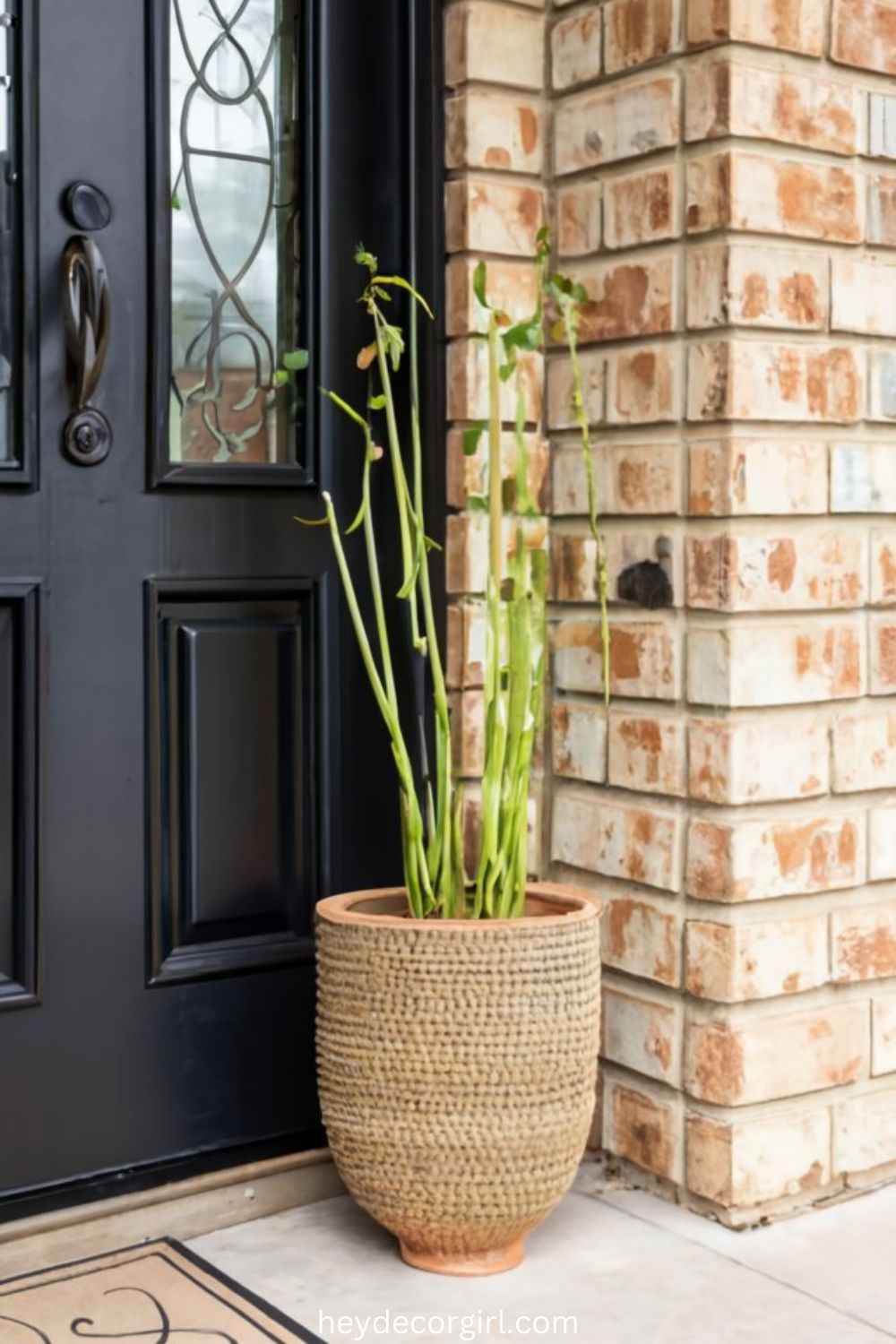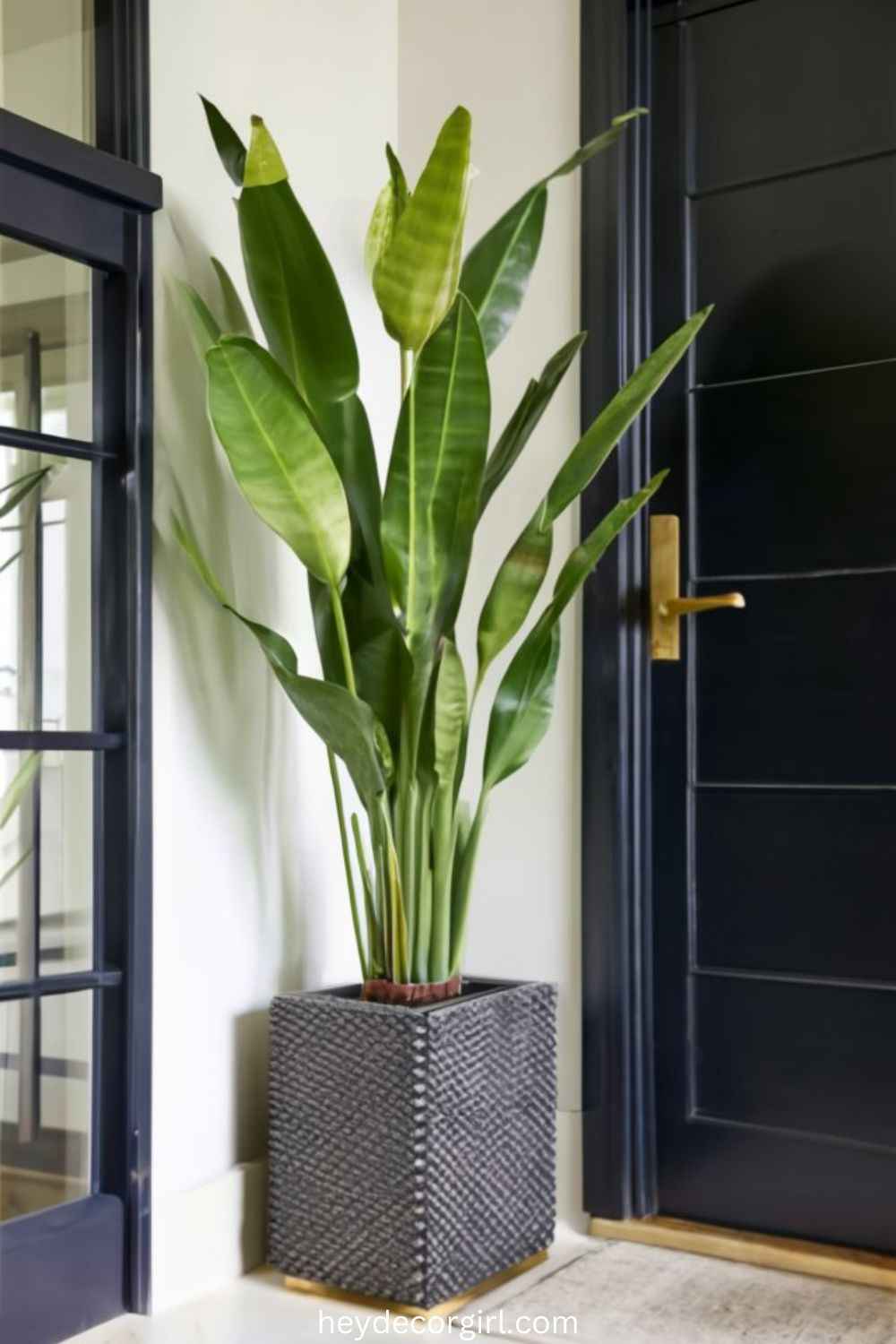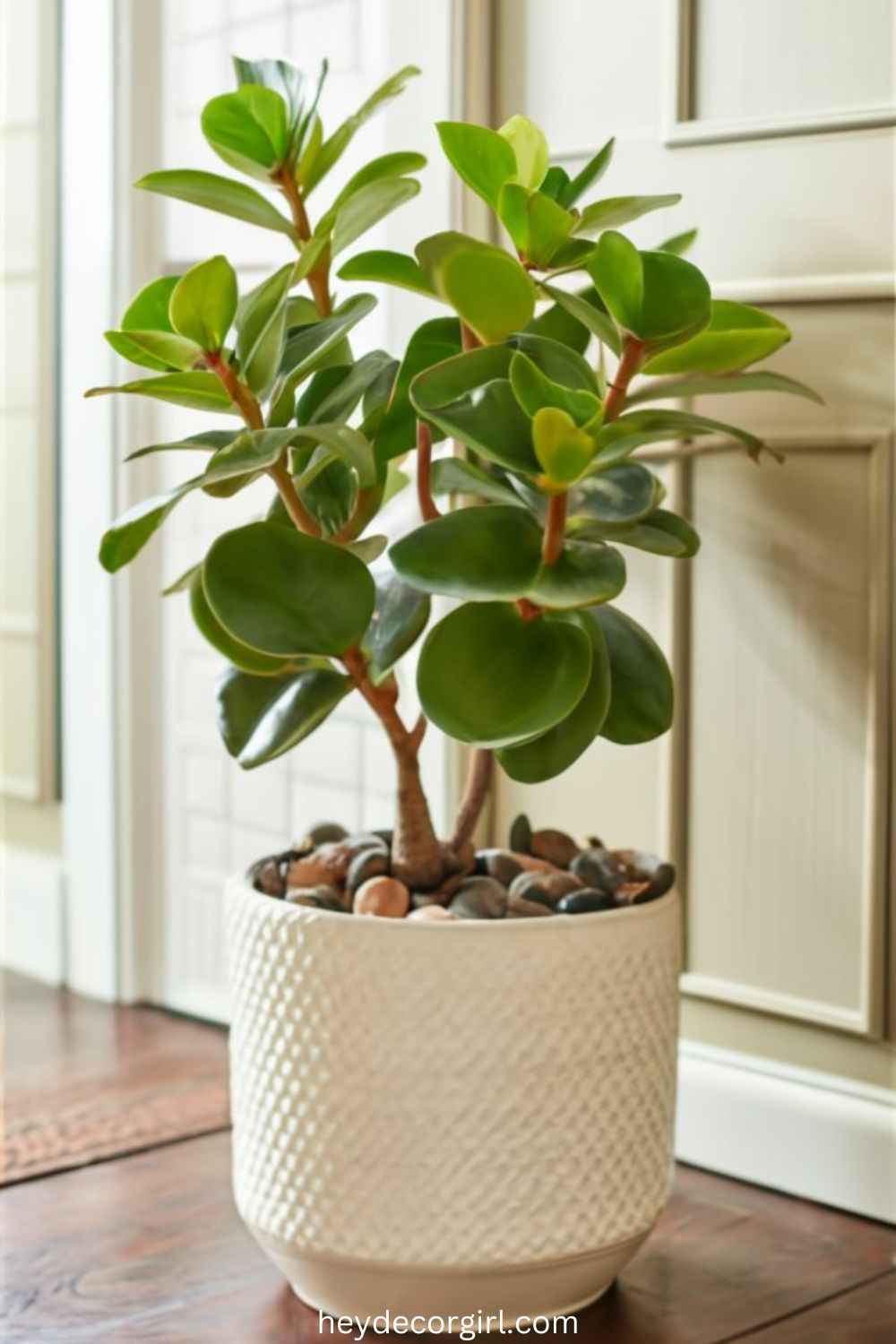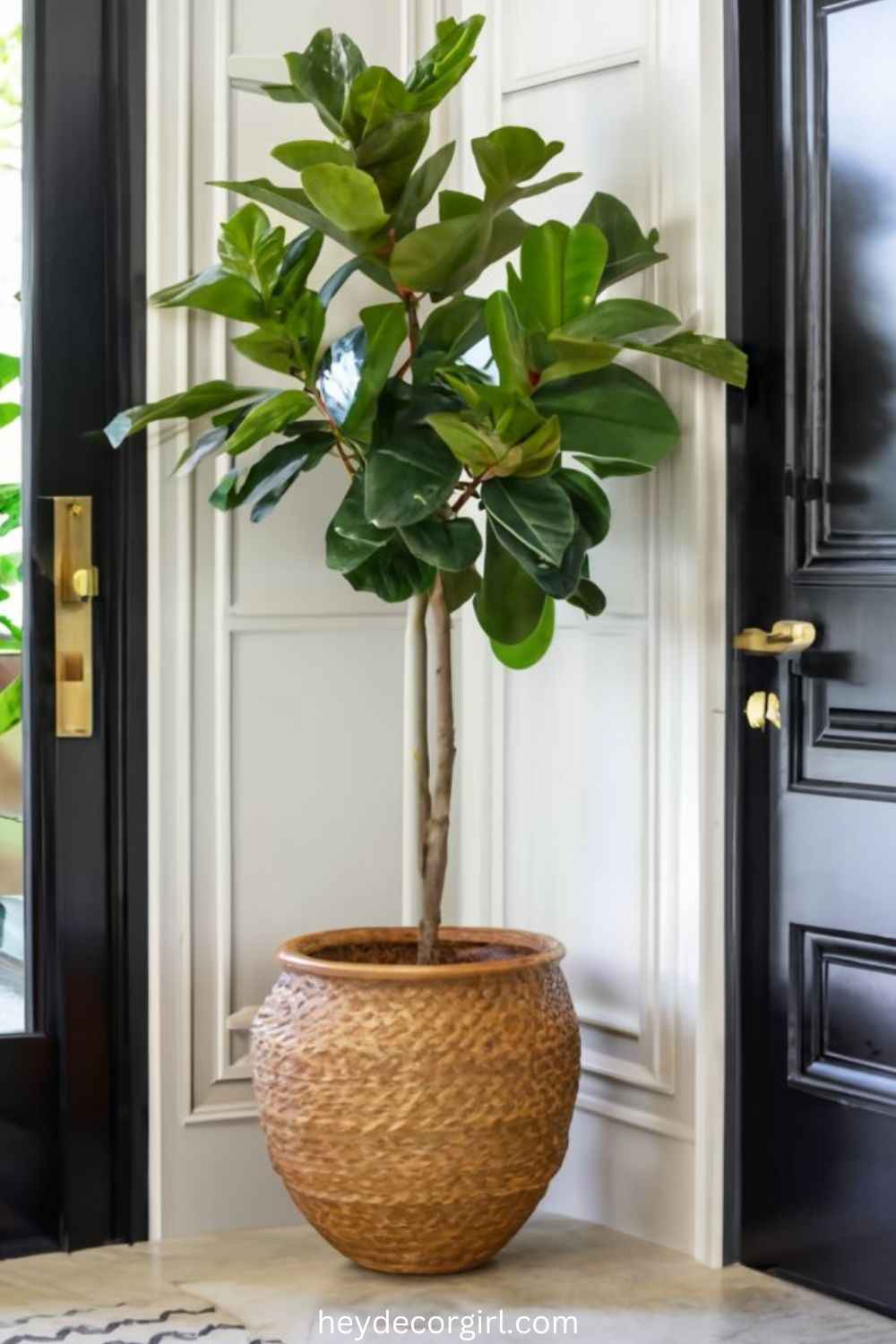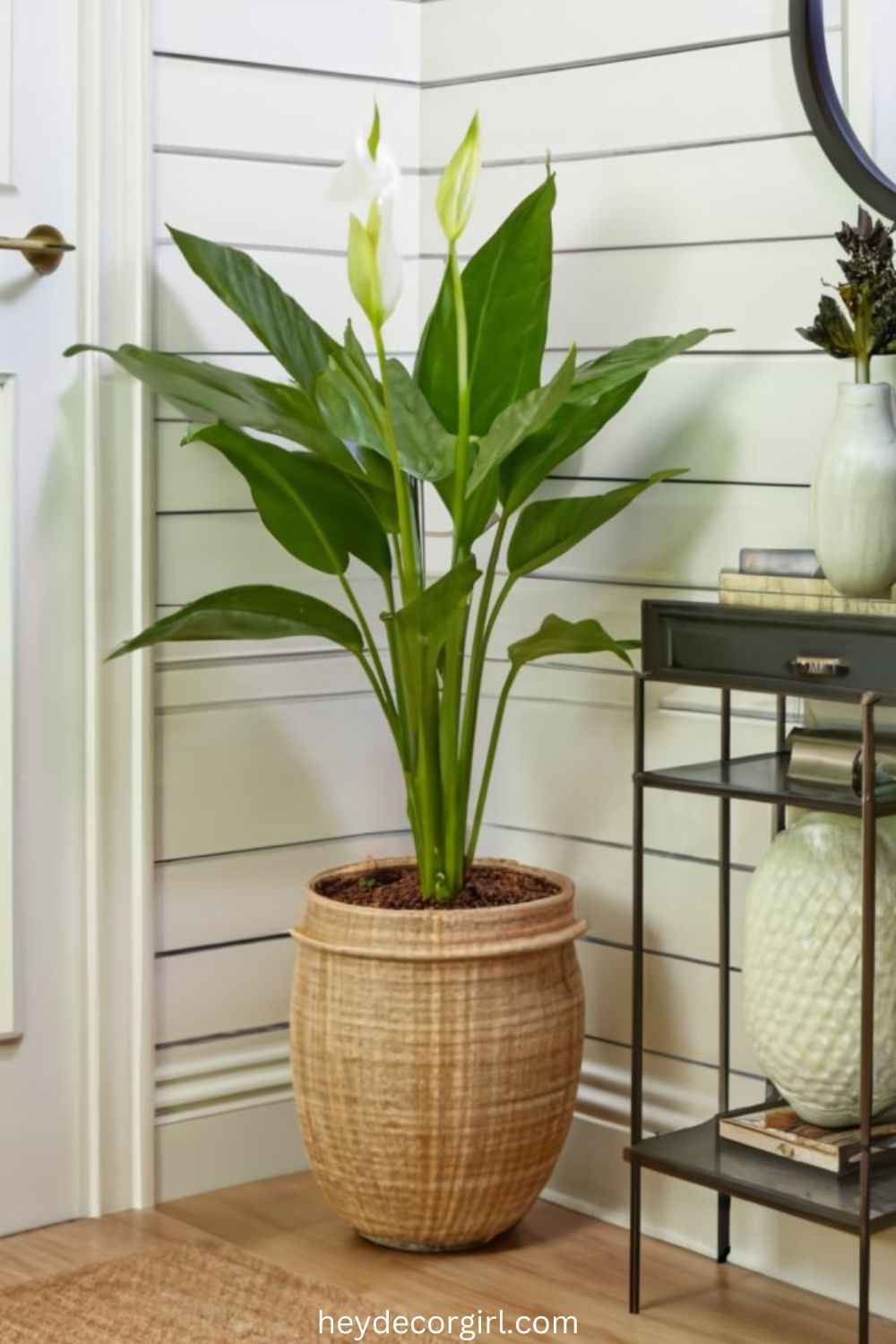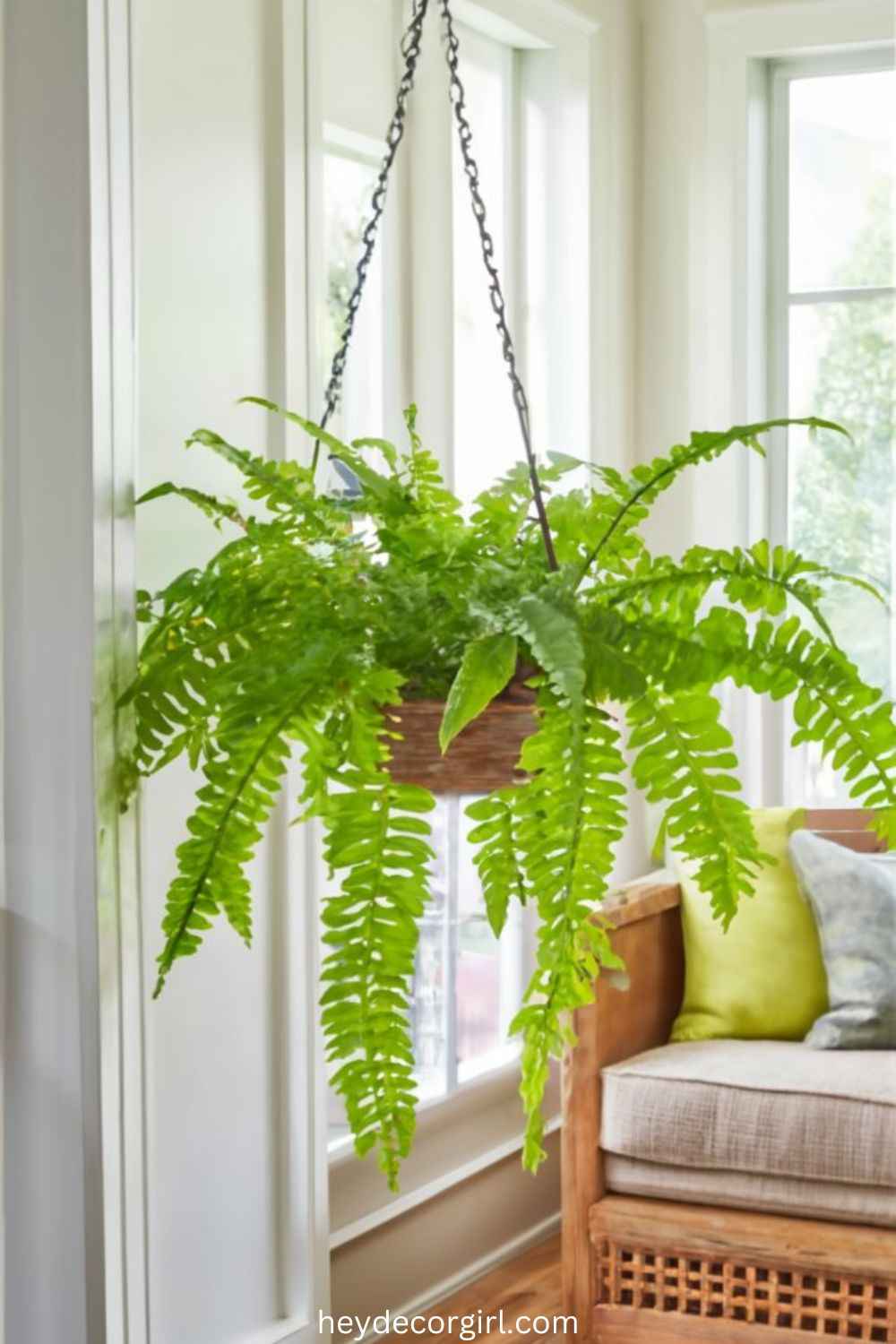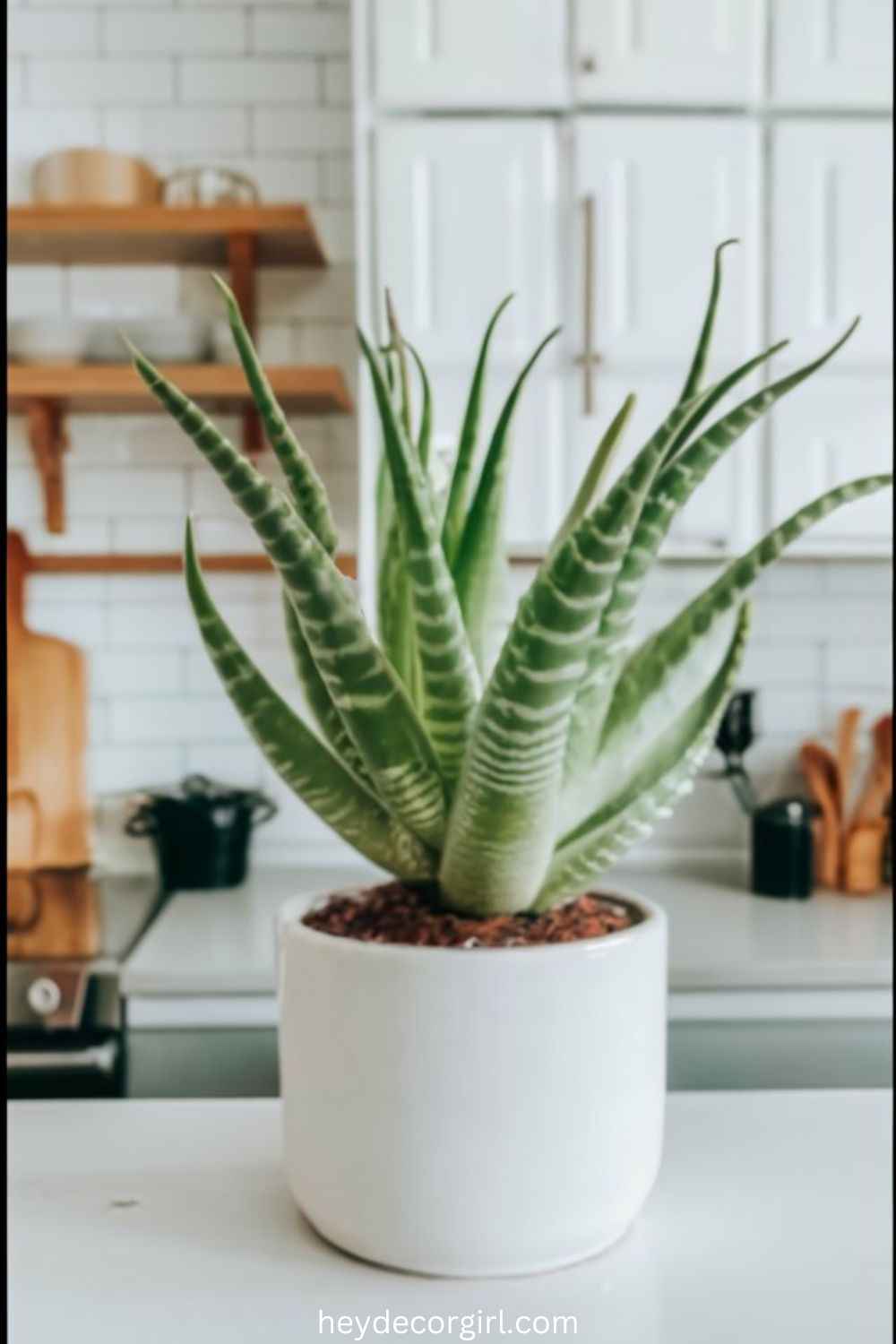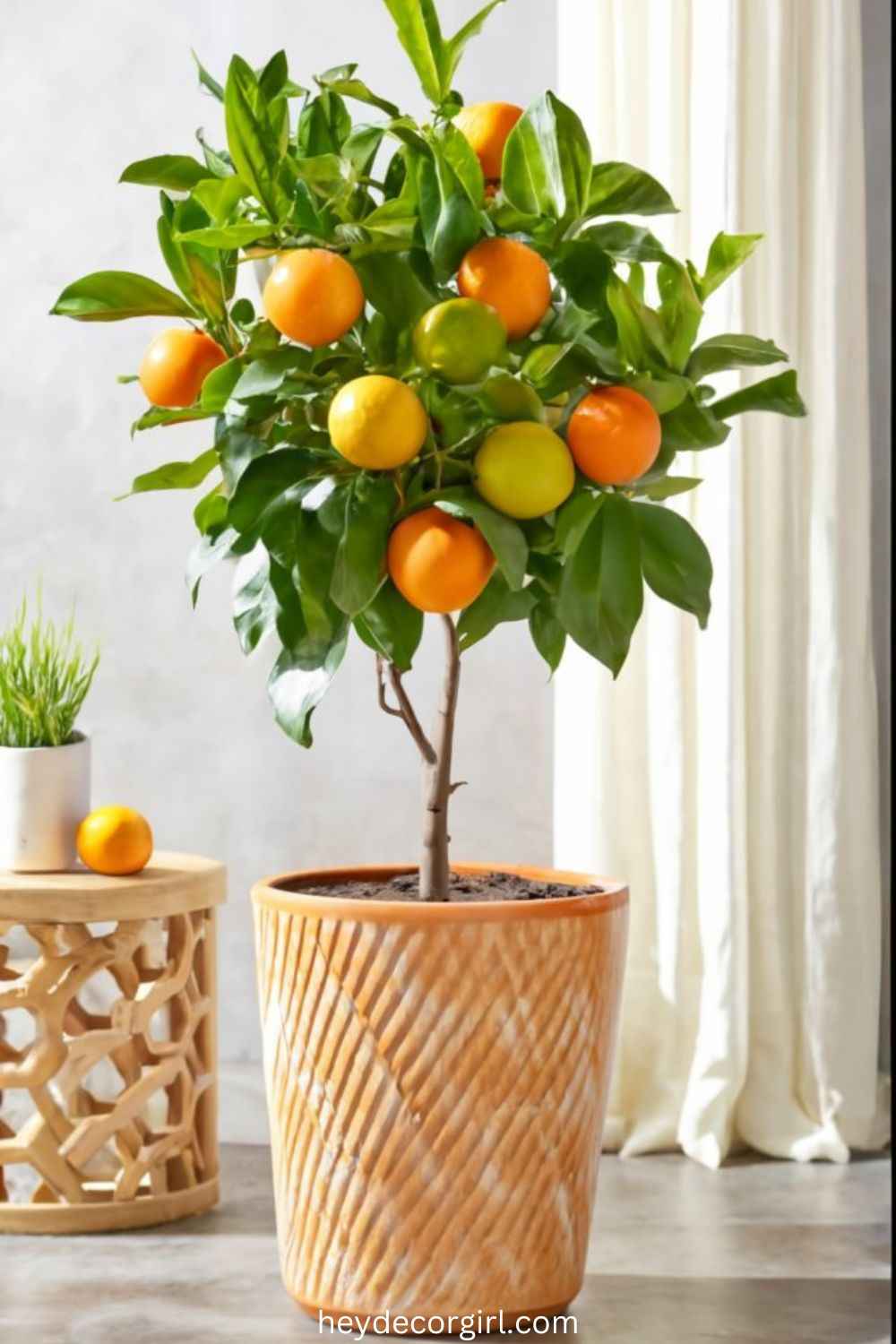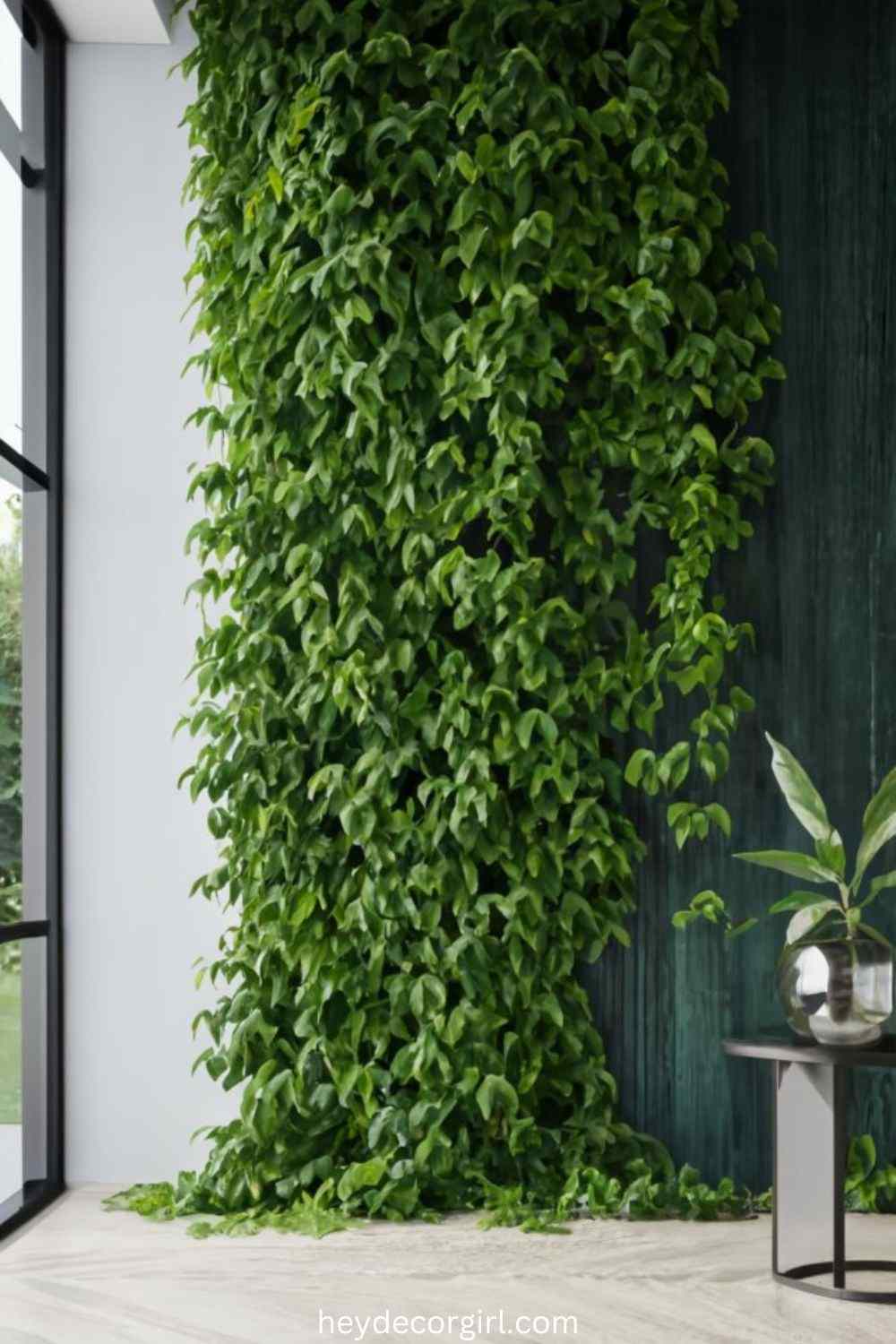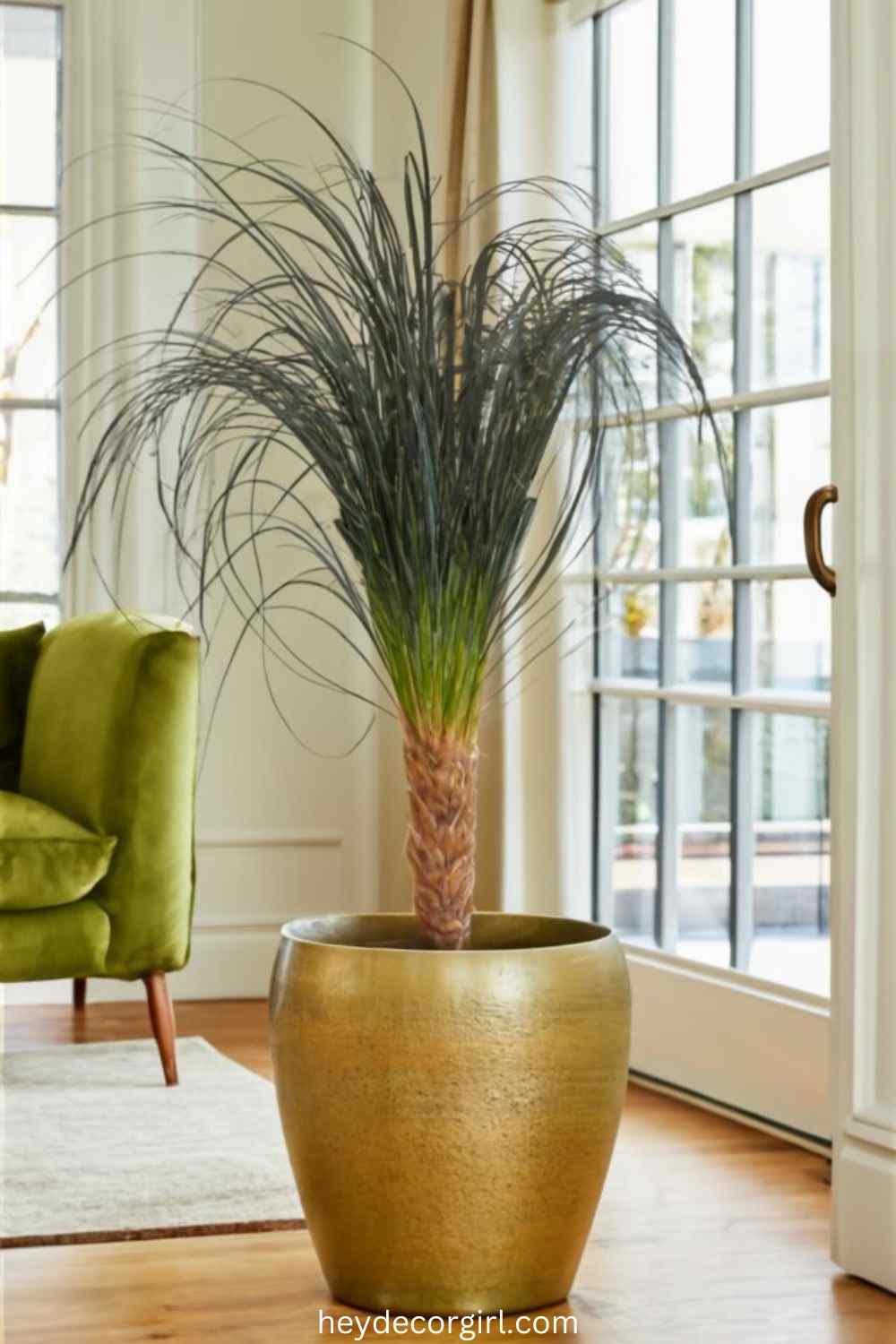Plants for Good Feng Shui, an ancient Chinese practice, emphasizes the harmonious arrangement of space to enhance the flow of energy, or Chi, within a home. Plants play a crucial role in this practice, as they are believed to channel positive energy and create a welcoming atmosphere.
In Feng Shui, the front door is considered the primary entryway for Chi, making it a focal point for energy flow in your home. By strategically placing plants at your front door, you can attract beneficial energy, improve the ambiance, and set a positive tone for anyone entering your home. Plants not only bring a touch of nature and beauty but also help balance the five elements—wood, water, metal, earth, and fire—enhancing the overall Feng Shui of your entrance.
Best “Front Door” Plants For Good Feng Shui
1. Lucky Bamboo (Dracaena sanderiana)
Benefits and Symbolism:
- Symbol of Prosperity: Lucky Bamboo is renowned for its association with good fortune and prosperity. In Feng Shui, it is often used to attract wealth and positive energy.
- Health and Vitality: This plant is also believed to promote health and longevity, making it a popular choice for enhancing overall well-being.
- Flexibility and Growth: Its ability to grow in various conditions symbolizes resilience and adaptability, reflecting the ideal of thriving in different environments.
Ideal Placement:
- Wealth Corner: Place Lucky Bamboo in the wealth corner of your home, which is the farthest left corner from the entrance. This location is believed to amplify its prosperity-enhancing qualities.
- Entryway: Position it near the front door or in the foyer to invite positive energy into your home right from the entrance.
- Desk or Office: It is also ideal for office spaces or desks, where it can boost focus and attract financial success.
- Avoid Direct Sunlight: Lucky Bamboo thrives in indirect light, so avoid placing it in direct sunlight. It prefers a bright, but not overly sunny, spot to maintain its vibrant growth.
By incorporating Lucky Bamboo into your front door decor, you invite a sense of vitality and abundance into your space, aligning with the principles of Feng Shui.
2. Snake Plant (Sansevieria)
Benefits and Symbolism:
- Purification of Air: Snake Plant is known for its ability to filter toxins from the air, such as formaldehyde and benzene. This makes it an excellent choice for improving indoor air quality and promoting a healthier living environment.
- Symbol of Protection: In Feng Shui, the Snake Plant is considered a symbol of protection. Its upright leaves represent strength and stability, and it’s believed to shield the home from negative energy.
- Ease of Care: The plant’s resilience and low maintenance needs symbolize endurance and perseverance, making it an ideal choice for those looking for a plant that thrives with minimal attention.
Ideal Placement:
- Entryway: Place the Snake Plant near the front door to harness its protective qualities and improve the flow of positive energy into your home. Its vertical leaves make it a strong focal point for the entryway.
- Living Room or Office: It’s also well-suited for living rooms and offices where it can purify the air and add a touch of natural elegance. Place it in a corner or against a wall to complement the room’s decor.
- Avoid Direct Sunlight: While Snake Plants are hardy, they prefer indirect light or low light conditions. Avoid placing them in direct sunlight, which can scorch their leaves.
- Corner or Dark Spaces: This plant is versatile and can thrive in darker areas or corners where other plants might struggle, making it ideal for adding a touch of greenery to less-lit spaces.
By positioning a Snake Plant thoughtfully, you enhance both the aesthetic appeal and the energetic balance of your space, aligning with Feng Shui principles.
3. Jade Plant (Crassula ovata)
Benefits and Symbolism:
- Symbol of Wealth: The Jade Plant is widely recognized as a symbol of good luck and prosperity. In Feng Shui, it is often referred to as the “Money Tree” because of its association with attracting wealth and financial abundance.
- Health and Longevity: It is also believed to promote health and longevity, reflecting its robust and enduring nature.
- Positive Energy: The rounded, coin-shaped leaves of the Jade Plant are thought to attract and enhance positive energy, making it a popular choice for energizing spaces.
Ideal Placement:
- Wealth Corner: Place the Jade Plant in the wealth corner of your home or office, which is the farthest left corner from the entrance. This location is believed to maximize its prosperity-enhancing properties.
- Entryway: Position it near the front door to invite wealth and positive energy into your home right from the entrance. It can also add a touch of greenery and charm to the entryway.
- Office or Study: The Jade Plant is also ideal for offices or study areas, where it can help boost financial success and create a positive atmosphere for work and study.
- Avoid Direct Sunlight: While it enjoys bright, indirect light, direct sunlight can cause its leaves to scorch. Place it in a spot with good but filtered light to keep it healthy and vibrant.
By incorporating a Jade Plant into your decor, you align with Feng Shui principles to enhance both the aesthetic appeal and the flow of positive energy in your space.
4. Money Tree (Pachira aquatica)
Benefits and Symbolism:
- Symbol of Wealth and Prosperity: The Money Tree is renowned in Feng Shui for its association with financial abundance and success. Its braided trunk and lush leaves are believed to attract good fortune and wealth.
- Positive Energy: The plant is also thought to bring positive energy and balance into a space, making it a popular choice for creating a harmonious environment.
- Resilience: The Money Tree is known for its hardiness and adaptability, symbolizing resilience and the ability to thrive despite challenges.
Ideal Placement:
- Wealth Corner: Place the Money Tree in the wealth corner of your home or office, which is the farthest left corner from the entrance. This placement is believed to amplify its prosperity-enhancing effects.
- Entryway: Position it near the front door or in the foyer to attract and invite positive energy and abundance into your home right from the entrance.
- Living Room or Office: The Money Tree is also suitable for living rooms or offices where it can boost financial success and create a welcoming atmosphere.
- Bright, Indirect Light: It prefers bright, indirect light. Avoid direct sunlight, which can scorch its leaves. Ensure it has access to adequate light to maintain its vibrant green color and overall health.
By incorporating a Money Tree into your decor, you enhance both the energetic and aesthetic qualities of your space, aligning with Feng Shui principles for prosperity and positive energy.
5. Peace Lily (Spathiphyllum)
Benefits and Symbolism:
- Symbol of Peace and Harmony: The Peace Lily is often associated with peace, harmony, and tranquility. Its elegant white blooms and lush green foliage are believed to bring a calming influence to any space.
- Air Purification: Known for its ability to filter out indoor pollutants such as formaldehyde, benzene, and trichloroethylene, the Peace Lily contributes to a healthier indoor environment.
- Healing and Protection: In Feng Shui, it is considered a protective plant that enhances the overall energy of a room, making it a popular choice for creating a serene and balanced atmosphere.
Ideal Placement:
- Living Room or Bedroom: Place the Peace Lily in the living room or bedroom to promote a soothing and peaceful environment. Its calming presence makes it well-suited for spaces where relaxation is important.
- Entryway: Position it near the front door to enhance the welcoming atmosphere of your home and to invite positive, harmonious energy inside.
- Bright, Indirect Light: The Peace Lily thrives in bright, indirect light. Avoid placing it in direct sunlight, which can scorch its leaves and reduce its blooming potential. It also adapts well to low light conditions, making it versatile for various indoor settings.
- Humidity: This plant enjoys higher humidity levels, so consider placing it in areas with naturally higher moisture or use a humidifier to keep it thriving.
By incorporating a Peace Lily into your space, you align with Feng Shui principles to foster a harmonious and healthful environment.
6. Boston Fern (Nephrolepis exaltata)
Benefits and Symbolism:
- Symbol of Renewal and Growth: The Boston Fern is associated with renewal, growth, and vitality. Its lush, feathery fronds symbolize new beginnings and the ability to rejuvenate.
- Air Purification: This plant is excellent for improving indoor air quality, as it can filter out pollutants like formaldehyde and xylene, contributing to a healthier living environment.
- Balance and Harmony: In Feng Shui, the Boston Fern is valued for its ability to bring balance and harmony to a space, enhancing the flow of positive energy (Chi).
Ideal Placement:
- Living Room or Bathroom: Place the Boston Fern in the living room or bathroom to benefit from its air-purifying qualities and to add a touch of natural elegance. Its lush foliage creates a refreshing and lively atmosphere.
- Entryway: Position it near the front door or in the foyer to welcome positive energy into your home. Its vibrant greenery makes a striking visual impact and helps set a welcoming tone.
- Bright, Indirect Light: The Boston Fern thrives in bright, indirect light. Avoid placing it in direct sunlight, which can cause its fronds to scorch. It also enjoys higher humidity, so consider placing it in areas with naturally higher moisture or using a humidifier.
- Hanging Planter: This plant is well-suited for hanging planters or elevated stands, where its cascading fronds can be showcased and appreciated from different angles.
By incorporating a Boston Fern into your decor, you enhance the Feng Shui of your space with its symbolic qualities and air-purifying benefits.
7. Aloe Vera (Aloe barbadensis)
Benefits and Symbolism:
- Healing and Health: Aloe Vera is renowned for its medicinal properties, particularly its soothing gel which can be used to treat burns, cuts, and skin irritations. Symbolically, it represents healing, protection, and overall health.
- Air Purification: This plant helps to purify the air by removing toxins such as formaldehyde and benzene, contributing to a healthier indoor environment.
- Resilience: Known for its hardy nature, Aloe Vera symbolizes resilience and adaptability, thriving in various conditions and requiring minimal care.
Ideal Placement:
- Kitchen or Bathroom: Place Aloe Vera in the kitchen or bathroom to take advantage of its practical uses and to benefit from its air-purifying qualities. It’s especially useful in the kitchen where its gel can be readily accessed for minor skin issues.
- Entryway or Living Room: Position it near the front door or in the living room to welcome positive energy and enhance the overall health and vitality of the space.
- Bright, Indirect Light: Aloe Vera thrives in bright, indirect light. Avoid placing it in direct sunlight, which can cause its leaves to burn. It can also adapt to lower light conditions but will grow best in a sunny spot.
- Dry Areas: This plant prefers dry conditions and should not be overwatered. Ideal placement includes areas with good drainage and minimal humidity.
By integrating Aloe Vera into your decor, you bring both practical benefits and symbolic meaning into your space, aligning with Feng Shui principles to enhance health and positive energy.
8. Citrus Trees (Citrus spp.)
Benefits and Symbolism:
- Symbol of Abundance and Prosperity: Citrus trees, with their vibrant fruits and lush foliage, are often associated with wealth, abundance, and prosperity in Feng Shui. Their fruit-bearing nature symbolizes prosperity and the fulfillment of desires.
- Health and Vitality: The fresh, zesty aroma of citrus fruits is believed to invigorate and uplift the spirit, contributing to overall well-being and energy.
- Purification and Freshness: Citrus trees help purify the air and bring a refreshing scent to indoor spaces, enhancing the vitality and clarity of the environment.
Ideal Placement:
- Wealth Corner: Place citrus trees in the wealth corner of your home or office, which is the farthest left corner from the entrance. This placement is thought to amplify their prosperity-enhancing qualities.
- Bright, Sunlit Areas: Citrus trees thrive in bright, sunny spots. Position them where they can receive ample sunlight, such as a sunny window or a well-lit indoor garden area.
- Entryway or Living Room: They can also be placed near the front door or in the living room to create a vibrant, welcoming atmosphere and invite positive energy into your home.
- Outdoor Patios or Balconies: If space allows, citrus trees can also be grown outdoors on patios or balconies where they can enjoy natural light and fresh air. This placement helps them flourish and adds a touch of greenery and fruitfulness to your outdoor space.
By incorporating citrus trees into your decor, you align with Feng Shui principles to enhance both the aesthetic appeal and energetic balance of your space, promoting abundance and vitality.
9. Creeping Fig (Ficus pumila)
Benefits and Symbolism:
- Symbol of Growth and Adaptability: The Creeping Fig, with its vigorous, spreading growth, symbolizes adaptability, resilience, and continuous growth. Its ability to cover surfaces quickly represents the concept of flourishing and expansion.
- Air Purification: This plant contributes to a healthier indoor environment by filtering out pollutants and improving air quality.
- Aesthetic Appeal: Its dense, lush foliage creates a natural, green backdrop, enhancing the aesthetic appeal of indoor and outdoor spaces.
Ideal Placement:
- Living Room or Office: Place the Creeping Fig in the living room or office where its trailing vines can enhance the decor and bring a touch of greenery. It works well on shelves, as a hanging plant, or as a living wall element.
- Entryway: Position it near the front door or in the foyer to create a welcoming and lush environment. Its cascading vines can add a vibrant touch to the entryway and improve the flow of positive energy.
- Bright, Indirect Light: Creeping Fig thrives in bright, indirect light. It can adapt to lower light conditions but will grow best in a well-lit spot. Avoid direct sunlight, which can scorch its leaves.
- Vertical Surfaces: This plant is ideal for growing on vertical surfaces, such as walls or trellises, where its vines can spread and create a beautiful green cover. It’s also effective in hanging planters or on decorative stands.
By incorporating a Creeping Fig into your decor, you enhance both the visual appeal and the positive energy flow of your space, aligning with Feng Shui principles of growth and adaptability.
10. Ponytail Palm (Beaucarnea recurvata)
Benefits and Symbolism:
- Symbol of Strength and Resilience: The Ponytail Palm, with its unique bulbous base and long, arching leaves, symbolizes strength, resilience, and adaptability. Its hardy nature reflects the ability to thrive in various conditions.
- Low Maintenance: This plant is known for its low maintenance requirements, making it a symbol of simplicity and ease.
- Air Purification: The Ponytail Palm helps improve indoor air quality by filtering out pollutants, contributing to a healthier living environment.
Ideal Placement:
- Living Room or Office: Place the Ponytail Palm in the living room or office where its striking appearance can be a focal point. Its unique shape and texture add an interesting visual element to any space.
- Entryway: Position it near the front door or in the foyer to create a bold, welcoming statement. Its robust form and distinctive silhouette can enhance the entrance and set a positive tone for your home.
- Bright, Indirect Light: The Ponytail Palm thrives in bright, indirect light. It can tolerate lower light conditions but grows best with ample sunlight. Avoid direct sunlight, which can scorch its leaves.
- Dry Areas: This plant prefers dry conditions and requires minimal watering. Ideal placement includes areas with good drainage and minimal humidity, as it does not like to sit in wet soil.
By incorporating a Ponytail Palm into your decor, you align with Feng Shui principles to enhance both the aesthetic appeal and energetic balance of your space, symbolizing strength and resilience.
FAQ
1. Why is it important to choose the right plants for the front door?
Choosing the right plants for your front door is essential because they can enhance the flow of positive energy (Chi) into your home. According to Feng Shui principles, the front door is a critical area where energy enters, and the right plants can attract prosperity, health, and harmony while creating an inviting and aesthetically pleasing entrance.
2. What types of plants are considered best for Feng Shui at the front door?
Plants that are generally considered good for Feng Shui at the front door include those that symbolize wealth, health, and protection. Examples include the Money Tree, Jade Plant, Peace Lily, and Boston Fern. These plants are chosen for their symbolic meanings and their ability to enhance the flow of positive energy.
3. How do I determine the best placement for front door plants?
The ideal placement for front door plants depends on the specific type of plant and the Feng Shui principles you wish to follow. Typically, plants should be placed where they can be easily seen and enjoyed, such as near the entrance or in the foyer. Ensure they are positioned to receive bright but indirect light and avoid blocking the entryway.
4. Can I use artificial plants for Feng Shui purposes?
While artificial plants can add decorative value, they are generally not recommended for Feng Shui purposes. Live plants are preferred because they bring real, living energy into the space and have the added benefits of air purification and growth symbolism. If using artificial plants, ensure they are high-quality and well-maintained.
5. How often should I care for the front door plants?
Front door plants should be cared for regularly to keep them healthy and vibrant. This includes watering according to their needs, providing appropriate light, and ensuring proper drainage. Regular maintenance is crucial for keeping the plants in good condition and ensuring they continue to enhance the energy of your entrance.
6. What if my front door does not receive much sunlight?
If your front door area does not receive much sunlight, choose plants that thrive in low light or indirect light conditions. Examples include the Peace Lily, Boston Fern, and Snake Plant. These plants can adapt to lower light environments while still contributing to positive Feng Shui.
7. Are there any plants to avoid at the front door?
It’s best to avoid plants with sharp thorns or spiky leaves, as they are believed to create negative energy or “Sha Chi.” Additionally, avoid plants that require excessive care or have a reputation for being unlucky, such as the cactus in certain Feng Shui traditions.
8. Can I combine multiple plants at the front door?
Yes, combining multiple plants can be effective if they complement each other in terms of symbolism and care requirements. Ensure that the plants are arranged harmoniously and do not overcrowd the entrance. The combination should enhance the overall energy and aesthetics of the front door area.
9. How can I enhance the Feng Shui of my front door area besides using plants?
In addition to using plants, consider other Feng Shui enhancements such as a welcoming doormat, a fresh coat of paint in an auspicious color, good lighting, and clean, clutter-free surroundings. These elements collectively contribute to a positive and inviting energy at your front door.
10. Where can I find more information about Feng Shui and plants?
For more information about Feng Shui and the role of plants, you can consult Feng Shui experts, read books on Feng Shui practices, or explore reputable websites dedicated to Feng Shui and interior design. Many resources offer detailed advice on how to integrate plants effectively into your home’s energy.

Hi, I’m Richa, the creative mind and passionate soul behind Hey Decor Girl. With a bachelor’s degree in Inter-space Design and a deep love for transforming spaces, I’ve dedicated my career to bringing style, comfort, and personality into homes. As an interior designer and architect, I’ve had the pleasure of crafting unique living environments that reflect the individuality of those who live in them.
At Hey Decor Girl, I share my expertise in all things home decor—from cozy living room makeovers to rustic farmhouse designs and everything in between. My mission is to inspire you to create spaces that not only look stunning but also feel like home. Whether you’re looking for the latest trends or timeless classics, I’m here to guide you every step of the way. Let’s make your dream home a reality, one stylish detail at a time.
"Front Door" Plants For Good Feng Shui Best "Front Door" Plants For Good Feng Shui Plants for Good Feng Shui
Last modified: September 23, 2024
![Hey Decor Girl [Latest Trending Decor Design Ideas]](https://heydecorgirl.com/wordpress/wp-content/uploads/2024/08/Heygirldecor-Logo.png)


